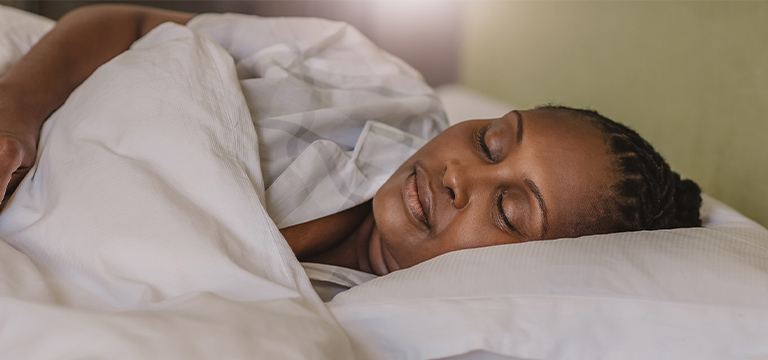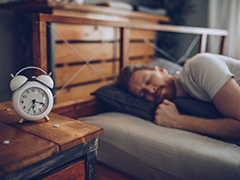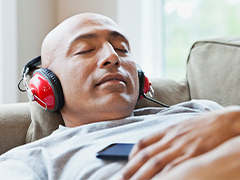How your sleep needs change as you age

From our ability to think clearly, to mood regulation and energy levels, good sleep is the foundation of healthy living. But you may notice that, as you age, good sleep can be harder to come by.
As a child, more time is spent in restful, deeper states of sleep. So, why is it harder to sleep as an adult? Aging plays a big role in affecting time spent asleep and the quality of sleep, along with gender, genetics, stress and circadian rhythm (your internal clock).
How much sleep do you need?
- Kids 6 to 12 years old are recommended to get between 9 to 12 hours of sleep per night
- Teens 13 to 18 need between 8 to 10 hours of sleep per night
- Adults should aim for 7 to 8 hours of sleep per night
Keep in mind, the amount of sleep you need as an adult is personal. Your goal should be to wake up feeling alert and refreshed each day. It’s important to listen to your body!
Sleep for women
Women experience more sleeping challenges due to reproductive hormones. Pregnant women may also experience heartburn and discomfort, which affects their ability to find consistent sleep.
Menopause also presents women with new sleep challenges that stem from changing hormone levels. Symptoms, like anxiety, hot flashes, night sweats and insomnia can make sleep especially challenging.
Habits for better sleep
Getting good, consistent sleep is much easier said than done. But here are a few habits that can go a long way to setting yourself up for a good night’s rest.
- Set a consistent bedtime
- Adopt a pre-bed routine with quiet activities, like reading, playing sudoku or doing a word search
- Banish screens, including smartphones, tablets and TVs, from the bedroom
- Set a lower temperature and keep your bedroom dark
- Start a journal and write a to-do list for items that could keep you awake
Daily Habits for healthy living
Daily Habits is here to help you achieve your health goals—and rewards. This program is designed to help you set and manage goals, create a plan of care, track your progress and pursue healthy activities. Getting started couldn’t be easier. Click here to learn more.
Sources:


